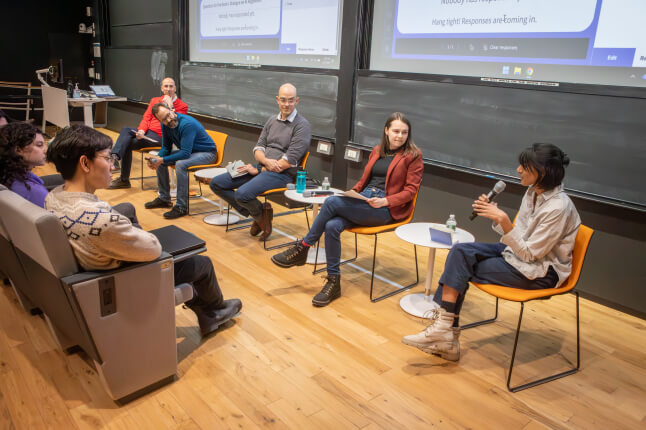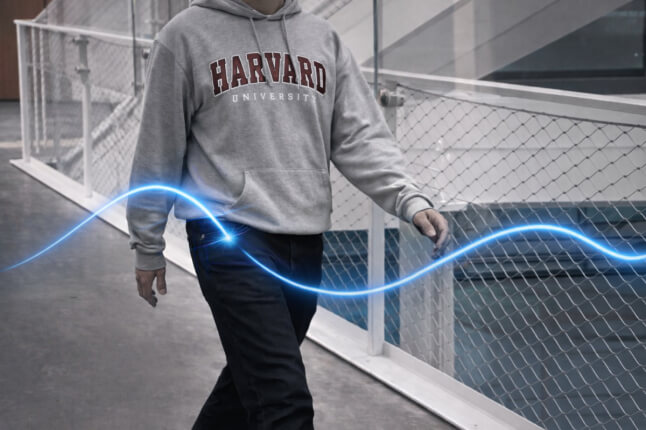News
Michael Albergo and Melanie Weber. Photo credits: Mark Dunn; Harvard SEAS
Two assistant professors in applied mathematics at the Harvard John A. Paulson School of Engineering and Applied Sciences (SEAS) have received AI2050 Fellowships from Schmidt Sciences, a nonprofit organization aimed at accelerating scientific knowledge and breakthroughs.
The AI2050 Program funds researchers pursuing projects to help artificial intelligence create benefits for humanity by 2050. Awarded researchers are solving challenging problems in AI, designing safer and more trustworthy AI modeling, and improving the ability of AI to pursue biological and medical research.
Michael Albergo is a Junior Fellow at the Harvard Society of Fellows, and in 2026 will join the SEAS faculty as an assistant professor in applied mathematics. He is also an incoming Institute Investigator at the Kempner Institute for the Study of Natural and Artificial Intelligence at Harvard. His research focuses on the methodological development of highly scalable generative models that draw mathematical inspiration from natural phenomena.
His Schmidt Sciences project will consider the mathematics of a class of generative modeling techniques, known as flow and diffusion models, that work by building maps between probability distributions. He will investigate how to make these techniques more efficient, general and controllable, and seek to use them for generative control of dynamical, living matter, including cellular development.
Melanie Weber is an assistant professor in applied mathematics and computer science at SEAS who joined the faculty in 2023 and leads the Geometric Machine Learning Group. Her research focuses on using geometric structure in data for the design of efficient machine learning and optimization methods with provable guarantees. Weber is also an affiliate faculty member at the Kempner Institute.
Schmidt Sciences will support Weber’s work in developing geometry-informed models that combine the strengths of geometric and general-purpose foundation models for building resource-efficient AI tools for scientific challenges. Encoding geometric structure derived from fundamental laws of physics can boost efficiency by narrowing the model’s focus to physically plausible conditions, reducing data and computing needs.
This year marks the fourth cohort of the AI2050 program, which now has 99 fellows across eight countries and 42 institutions. In 2025 the organization has awarded 21 early-career fellows and seven senior fellows more than $18 million over three years.
Topics: AI / Machine Learning, Applied Mathematics, Awards, Computational Science & Engineering, Computer Science
Cutting-edge science delivered direct to your inbox.
Join the Harvard SEAS mailing list.
Press Contact
Anne J. Manning | amanning@seas.harvard.edu



